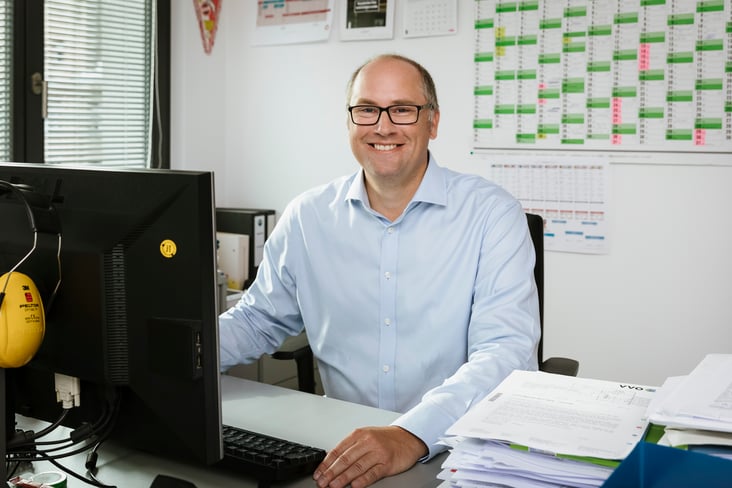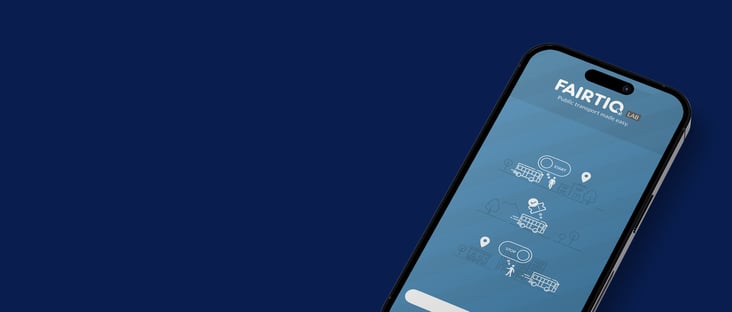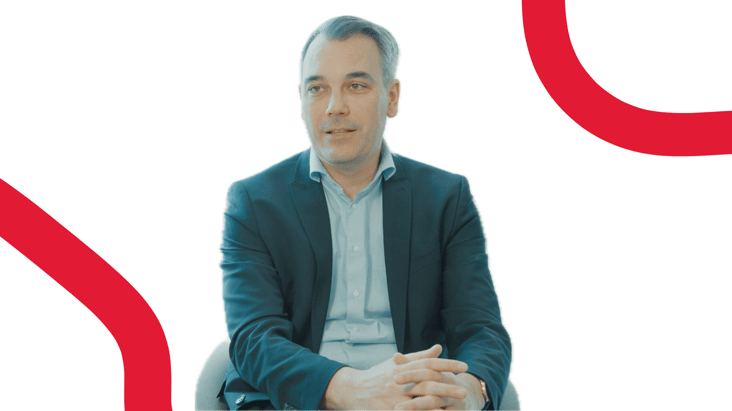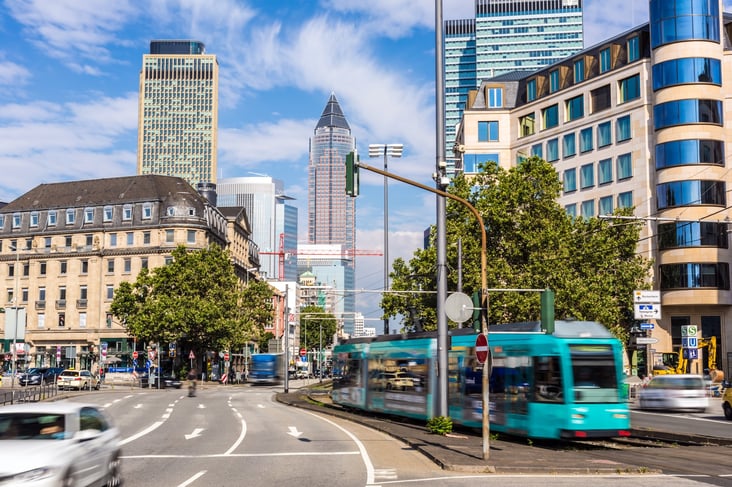
The digitalisation offensive mounted by the North Rhine-Westphalia public transport sector is in full swing. It includes a pilot test of the FAIRTIQ Lab app, which has clocked up 175,000 journeys and 8,800 test users since its launch in April 2019; the test phase has now been extended and will run until summer 2021. Also, roughly 80% of the test users who took part in a market research survey of the FAIRTIQ app rated the new Verkehrsverbund Rhein-Sieg (VRS) 'beeline' fare as fair. Here, users pay a flat-rate fare of 1.50€ per journey plus an additional 15 cents per kilometre travelled, with a daily cap of 15€
The overwhelmingly positive feedback from the test users of the FAIRTIQ app piqued our interest. So, we arranged an interview with project management at VRS GmbH in Cologne. Sascha Triemer, Head of Fares and Sales at VRS took some time out to talk to us:
Mr Triemer, the pilot test has been running for a year now. How would you rate your experience with FAIRTIQ so far?
Sascha Triemer:
It has been great so far. Our cooperation with FAIRTIQ has allowed us to offer our customers a new digital ticketing solution, including the new 'beeline' fare.
When we launched the project, it was a relatively exotic concept in Germany and completely uncharted territory for VRS. We were taken aback by the positive feedback from our customers. What particularly struck us was the fact that the test users use public transport more often than they did before and more often than the control groups.
Why did you choose FAIRTIQ over other solutions?
Sascha Triemer:
Reliable technology was a top priority for use because the use of conventional check-in/check-out technology can be problematic, especially in rural areas and the underground because internet coverage there tends to be patchy. FAIRTIQ passed this test with flying colours.
Our decision to go with FAIRTIQ was largely an instinctive one. We were already familiar with some of the solutions currently on the market, but then we met FAIRTIQ at a trade fair and realised pretty quickly that the foundations were there for us to strike up a good research and development partnership.
Customer convenience is an integral part of the FAIRTIQ app – users don't need any prior knowledge of fare zones to buy the right ticket. The app is also easy to use and reliable, uses a contactless and cashless payment system and incorporates a fair fare model. The overall effect is a genuine feel-good factor when purchasing tickets.

What opportunities do you think the coronavirus crisis offers in terms of digital ticketing and how do you think user needs have changed?
Sascha Triemer:
Given the ongoing coronavirus crisis, digital ticketing is an excellent alternative, particularly when it comes to public health, because it does away with the need to use ticket machines. Our studies found that the recent changes in our customers' public transport use could become permanent. Working from home has now become standard for many, so it will be really interesting to see how the situation evolves in the next few years.
What are the benefits of a 'beeline' fare for public transport operators?
Sascha Triemer:
Like all eFares, the main benefit of the 'beeline' fare for public transport companies is simple data acquisition. THe customer was at the forefront of our mind when we made the decision to introduce this new type of fare. In my opinion, our customers are the primary beneficiaries because it is easy to work out, is fair and means no more price hikes.
Do you think that the beeline fare will eventually replace your standard zone-based fares?
Sascha Triemer:
I honestly don't think so. I see the beeline fare as an addition to, not a replacement for, our existing range of fares, and it is primarily geared towards occasional public transport users.
Of course, there are digital refuseniks but they are not necessarily older people as some people might think. Added to this is the fact that our business cannot and will not rely on a particular user group. This is why we have to offer a range of solutions. Having said that, we could make the beeline fare our only digital fare, for example.
What needs to be in place for VRS and its partners to forge a long-term working relationship with FAIRTIQ?
Sascha Triemer:
All 25 participating public transport companies in the region need to be in favour of pursuing the partnership. The final decision rests with each one of them, not with VRS. Come summer 2021, our partners will have to choose whether to continue down this path or not.
What has user feedback on FAIRTIQ been like?
Sascha Triemer:
Feedback has been overwhelmingly positive and we received a great deal of praise. Many customers have said they want to continue using the FAIRTIQ app even after the pilot test is finished. According to the market research study we conducted with FAIRTIQ, user satisfaction levels were really high and they gave us top marks. Two features that respondents particularly like are the simple registration process and the check-out reminder.

Last question: How would you explain FAIRTIQ to someone who is not especially tech-savvy?
Sascha Triemer:
Before I answer, I'd like to point out that 16% of our FAIRTIQ test users are over 65. This is impressive given that it's often said that technology-driven projects like ours discriminates against older people. The results of our market research study refute this claim.
I personally believe that FAIRTIQ is the simplest way in the world to buy a public transport ticket. Simply download the app, register, swipe once to check in, then swipe again to check out. That's all there is to it!
Some of the feedback from participants in the Verkehrsverbund Rhein-Sieg pilot:
“I'm a real fan because the app does exactly what I need it to do because my home is right between two fare zones. I hope that it will be introduced on a permanent basis.”
“No need to work out the fare zone in advance, no queuing at the ticket machine, no hunting around for coins... It really takes the strain out of travelling by train!”
“The app works brilliantly, the payment system is super and I save money. It's all good. I hope it stays that way and will remain in use well after the test phase.”
“Before, I often worried that I didn’t buy the right ticket . However, thanks to the eFare, this is all a thing of the past. I also find it super fair: you only pay for the distance you actually have covered on public transport.”
Many thanks for taking the time to talk to us and we are excited to see what the future holds for VRS and your partners!







Share